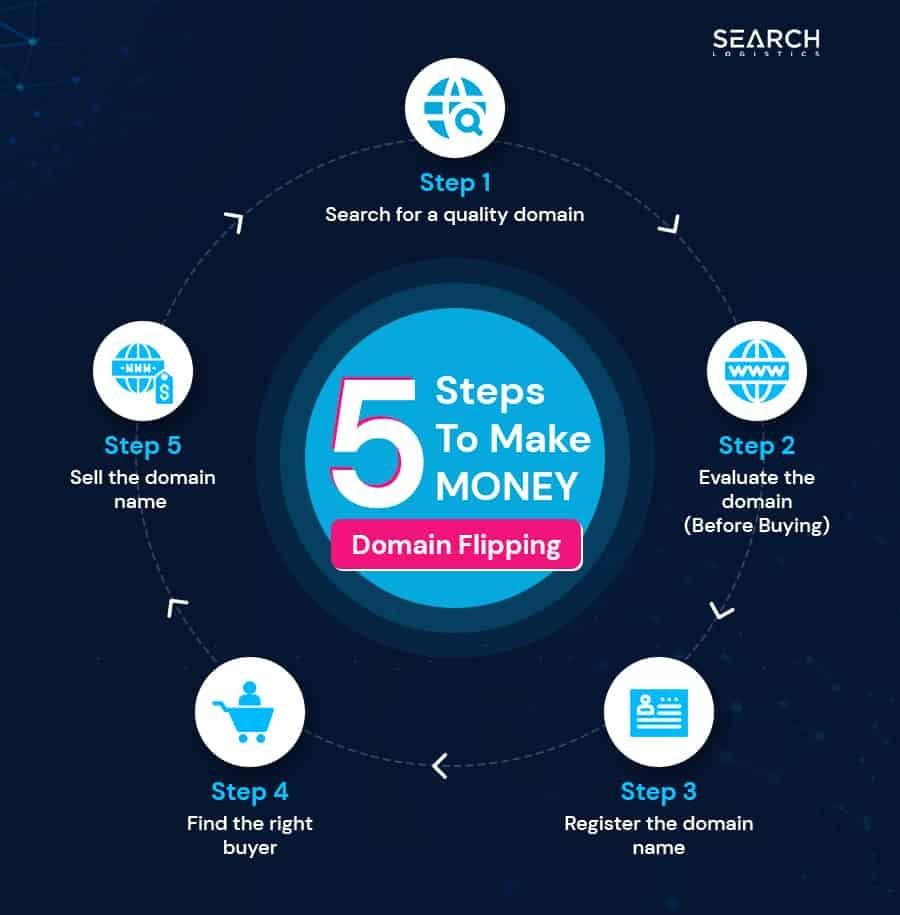Table of Contents
- Understanding the Domain Name Market and Its Potential for Profit
- Essential Strategies for Identifying Valuable Domain Names
- Crafting a Winning Sales Pitch for Your Domain Portfolio
- Leveraging SEO and Branding to Maximize Domain Value
- Navigating Legal Considerations in Domain Flipping
- Q&A
- The Conclusion
Understanding the Domain Name Market and Its Potential for Profit
The domain name market is a dynamic and often underestimated space within the digital landscape. With millions of websites vying for attention, the right domain name has the power to attract traffic and elevate brand visibility. As businesses and individuals increasingly recognize the importance of having an online presence, the demand for premium domain names continues to soar. This creates ripe opportunities for anyone interested in entering the realm of domain flipping.
One of the key aspects of this market is understanding the factors that contribute to a domain’s value. Consider the following elements that can significantly boost a domain’s profitability:
- Keyword Relevance: Domains containing popular keywords related to current trends or industries can command higher prices.
- Length: Shorter domains are often more desirable due to their memorability and ease of typing.
- Extension: While .com is still king, other extensions like .io or .ai can also attract specific audiences.
Profit potential is also influenced by market trends and buyer sentiment. Tracking shifts in technology, consumer behavior, and emerging industries can provide insights into which domains are likely to appreciate in value. For instance, consider how the rise of e-commerce has led to a spike in demand for catchy online retail domain names. Engaging with online communities or forums dedicated to domain investment can also enhance your understanding of the market and expand your network of potential buyers.


Essential Strategies for Identifying Valuable Domain Names
When diving into the world of domain flipping, the first step is to recognize the factors that make a domain name truly valuable. Start by focusing on short, memorable names. These tend to have a higher resale value because they are easier for potential buyers to remember and type. A domain name that is concise also reduces the chances of misspellings, which can directly impact traffic and brand recognition.
Another important element to consider is the keywords included in the domain name. Domains that incorporate popular or trending keywords can significantly enhance visibility in search engine results. It’s beneficial to conduct thorough keyword research using tools like Google Keyword Planner or SEMrush to discover what users are actively searching for. Additionally, names that relate directly to a specific industry or niche tend to attract businesses looking to establish their online presence, thus increasing their potential value.
Lastly, consider the domain extension you choose. While .com domains still dominate the market, other extensions like .net, .io, or .co can also be valuable, especially in certain sectors. Here’s a quick overview of some of the most recognized domain extensions and their typical market advantages:
| Extension | Market advantage |
|---|---|
| .com | Global recognition and trust |
| .net | Preferred for tech and networking |
| .co | Popular among startups and entrepreneurs |
| .io | Highly sought after in tech and gaming |


Crafting a Winning Sales Pitch for Your Domain Portfolio
When preparing your sales pitch, it’s essential to focus on the unique attributes of each domain in your portfolio. Highlight the potential value these domains can deliver. A well-crafted pitch should include key features such as:
- Keywords: Domains with popular keywords can rank higher in search engines, attracting more visitors.
- Brandability: A catchy and easy-to-remember domain can significantly impact brand recognition.
- Length: Shorter domains are often viewed as more desirable due to their simplicity.
Moreover, utilizing a storytelling approach can make your pitch more engaging. Share anecdotes about how certain domains have attracted traffic or led to successful businesses. Consider including a table to succinctly present important information about each domain in your portfolio:
| Domain Name | Purchase Price | Appraised Value | Key Selling Point |
|---|---|---|---|
| LuxuryHomesForSale.com | $1,500 | $5,000 | High demand for real estate listings. |
| EcoFriendlyProducts.com | $800 | $3,200 | Growing market for sustainable products. |
| TravelSavvy.com | $1,200 | $4,500 | Appeals to modern travelers. |
don’t underestimate the power of a strong call to action. Encourage potential buyers to envision what they could achieve with the domain. Use phrases like “Imagine the possibilities with this domain” or “Take the next step to elevate your brand.” This strategic approach reinforces their interest and prompts them to act.


Leveraging SEO and Branding to Maximize Domain Value
In the world of domain flipping, understanding the intricacies of both SEO and branding is essential for maximizing the value of your digital assets. A domain name that resonates well with search engine algorithms can significantly enhance its marketability. To effectively leverage SEO, focus on key elements such as keywords, domain age, and backlink profiles. This can be achieved by conducting comprehensive keyword research to identify terms that potential buyers may be searching for. When you choose a name that incorporates popular keywords, you not only increase its visibility but also pave the way for potential traffic, making it more attractive to prospective buyers.
Branding, on the other hand, plays a pivotal role in establishing a domain’s market value. A well-branded domain can evoke trust, recognition, and affinity in the minds of consumers. To create a strong brand identity, consider the following strategies:
- Simplicity: Choose a name that’s easy to spell and pronounce.
- Relevance: Ensure the domain communicates the essence of the business it represents.
- Memorability: Opt for unique combinations or phrasings that stand out.
Integrating both SEO and branding will not only enhance the perceived value of your domain but also its conversion potential. Below is a simplified comparison table highlighting the impact of these elements on domain value:
| Element | Impact on Value |
|---|---|
| SEO Optimization | Increases visibility and organic traffic, making the domain more appealing. |
| Brand Recognition | Fosters consumer trust and loyalty, enhancing demand. |
| Keyword Relevance | Aligns domain with market trends, attracting potential buyers. |


Navigating Legal Considerations in Domain Flipping
When diving into the intricate world of domain flipping, understanding the legal aspects is crucial to your success. One primary consideration is the intellectual property rights associated with domain names. This involves ensuring that your chosen domain does not infringe on existing trademarks. Conducting a thorough trademark search can prevent legal disputes down the road. Utilizing resources such as the United States Patent and Trademark Office (USPTO) database will help clarify any potential conflicts with registered trademarks.
Another vital aspect is compliance with ICANN regulations, which govern the registration and management of domain names. Flippers must be aware of the Uniform Domain Name Dispute Resolution Policy (UDRP), which outlines how disputes over domain names are settled. If you acquire a domain name with bad faith intent or if the name is identical to a famous trademark, you could face significant legal challenges. To avoid this, always opt for domains that have clear, unrestricted potential for resale.
It’s also essential to stay informed about the various legal considerations that vary by region. Different countries have distinct laws regarding domain name registration and ownership. Here’s a brief overview of some notable considerations:
| Region | Key Legal Consideration |
|---|---|
| United States | Trademark infringement laws |
| European Union | GDPR compliance for personal data |
| Australia | Domain name arbitration policies |
By understanding these legal nuances and maintaining ethical practices, you can navigate the complexities of domain flipping successfully, enhancing your opportunities in this lucrative market.

